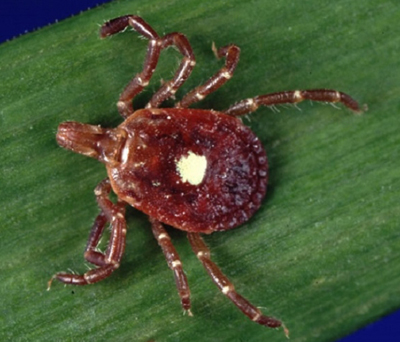
That walk in the woods a few weeks ago might have given you something other than fresh air and exercise. It has recently been discovered that bites from a certain type of tick may make someone allergic to red meat.
Lone Star ticks, named because of the white spot on its back, are commonly found in wooded areas from Texas to Maine, and across the Southeast. The tick carries a sugar called alpha- gal, which is also found in red meat, but not in people.
Washington University physician Jennifer Monroy, MD, division of allergy and immunology, explains, “It is believed that when a Lone Star tick bites someone, its saliva can transfer alpha-gal into the person’s bloodstream. The body then produces an allergic reaction to the sugar by producing antibodies towards the alpha-gal.”
The next time that person eats red meat, his or her immune system reacts to the alpha-gal in the meat, causing an allergic reaction. The reaction can be as mild as hives or itching and as severe as throat swelling or full-blown anaphylactic shock. This allergic reaction can take hours to develop as the red meat is digested.”
Antihistamines are effective in treating the mild allergic reactions, but epinephrine is required to treat the severe reactions. An EpiPen (that delivers a shot of epinephrine) should be carried at all times by someone who has developed the red meat allergy.
Because the red meat allergy is so new, it is not yet known if it is permanent, or if a person will outgrow it overtime.
Dr. Monroy says, “The most important thing someone can do if he or she develops the allergy, besides not eating red meat, is to avoid more tick bites – since the number of antibodies will rise with each bite. If you are spending time in any wooded area, wear clothing that can protect you.”
If you suspect you might have developed an allergy to red meat, and would like to see a Washington University allergy specialist, patients are seen at two convenient locations:
Center for Advanced Medicine – Lung Center
4921 Parkview Place, 8th floor, Suite B
314-454-7210
Barnes-Jewish West County Hospital, Medical Building Two
10 Barnes West Drive, Suite 200
314-996-8670